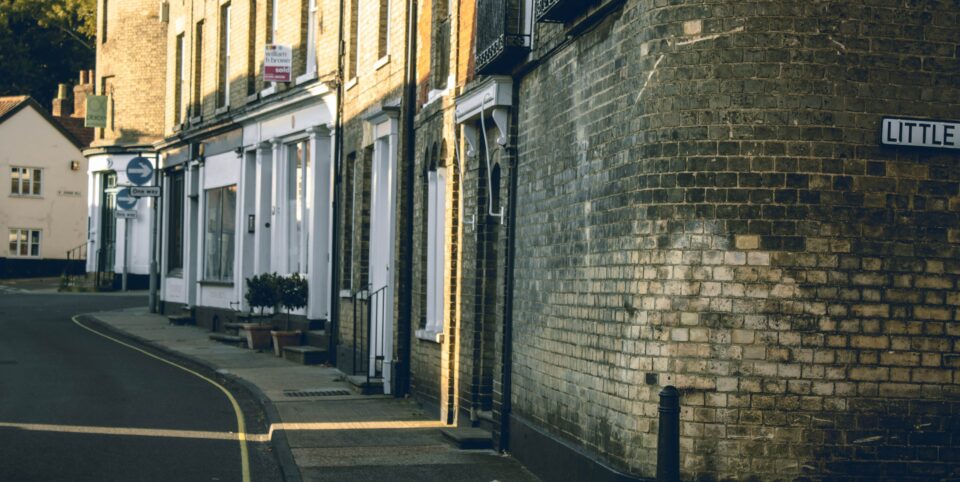Contact
020 7953 7040
info@ccameron.co.uk
Charles Cameron & Associates
Blackfriars Foundry
154-156 Blackfriars Road
London SE1 8EN
How to apply for a mortgage on your first property
January 15, 2021
Information published was correct at the time of writing
-

Applying for a mortgage – a loan to buy a house – can be daunting, especially if you’re a first-time buyer. There are a lot of off-putting new terms – ‘conveyancing’ anyone? – and so many stages to go through but if it’s starting to feel overwhelming, don’t worry. Millions of homeowners have successfully navigated their way through the process, and so can you!
Once you break down the mortgage application process, it’s surprisingly easy to follow. Even the occasional hiccup can be straightforward to rectify if you have the right advice to follow. Plus, you’ll never have to give your money to a landlord again.
Here are the key stages of the mortgage application process.
Decide what sort of property you’d like – and find out what you can afford
Before you apply for a mortgage, you should research exactly what type of property you fancy and which area you’d like to live in. Be realistic. There’s often a compromise to be made between location and space, so work out what’s most important to you. When it comes to the mortgage itself, banks lend on an individual affordability basis which is calculated by analysing your financial commitments, your dependents (if you have any) and income, so the amount you could borrow is not as simple as a loan-to-income ratio. However, you don’t need to worry about working this out for yourself. Our advisers here at Charles Cameron & Associates will advise you on what you can afford, so that your dream home can become a reality.
Save for the deposit
You will typically need at least 10 percent of your property’s value saved as a deposit before lenders will lend you anything. The larger your deposit, the better choice of mortgage deals you’ll have, so get saving or if borrowing from the ‘Bank of Mum and Dad’ is an option and right with all involved begin discussions with them to establish an agreement that suits all. Note: If you save through a Lifetime ISA (‘Lisa’), you can put in up to £4,000 a year and the Government will give you a 25 percent bonus of up to £1,000 on your savings if you’re using the money for a deposit on a home.
The actual application
There’s no substitute for experience when you’re applying for a mortgage, which is why so many people use Charles Cameron & Associates. Working with an independent broker such as us is sensible for a number of reasons: firstly, we’ve seen it all before so will be able to guide you through the process, looking out for factors (like a low credit score) that could scupper your application; secondly, we can see beyond eye-catching offers – such as super-low interest rates – to find you a mortgage that works for you in the longer term; and thirdly if you encounter any bumps in the road, we can often sort out the problem without you having to deal with it.
Remember: as your broker, we will need documented proof of your income and outgoings, so we can ensure you’ll be able to afford the repayments.
Now for the fees
Once you have received an Agreement in Principle from your mortgage provider
you can make an offer on a property with confidence. After that you can progress to your full mortgage application and remember, many products have incentives such as free valuation and if you add the arrangement fee to your mortgage loan, the upfront costs could be low.
While there are no charges at the Agreement in Principle stage, you will start to pay fees from that point onwards. Your mortgage provider will instruct a surveyor to value your home to make sure it’s worth what you’re paying for it – you may be charged for this valuation although some lenders offer it for free. As the lender’s valuation is very basic, you may want the additional comfort of paying for your own surveyor to inspect your new home to check for any structural faults.
There is usually one additional fee from your mortgage provider which is the ‘product fee which you will have to pay for at the time. Occasionally some lenders may also charge for a ‘arrangement fee’ which you can pay for immediately or just add it to the capital you have to pay back.
Then you will need to employ a solicitor to ensure the legal side, or ‘conveyancing’, is taken care of (i.e, the ‘drawing down’ of the mortgage and transfer of funds to the vendor). As your mortgage advisors, we can refer you to trusted solicitors who are approved by the lenders’ panel. As well as the solicitor’s fees, they will also arrange for the land registry and searches on the property to be done, with these costs usually added to your legal bill.
Finally, depending on the value of the property, you will need to pay Stamp Duty – a government tax based on the value of your new home. You can read more about Stamp Duty here. Remember, until the end of March this year, if you have completed your house purchase you can take advantage of the Government’s Stamp Duty ‘holiday’ which means that the first £500,000 of any property purchase is exempt from the tax.
A final word…
From initial application to completion may take several months, but as long as you’re aware of what’s expected from you and you come prepared, you can apply with confidence.



